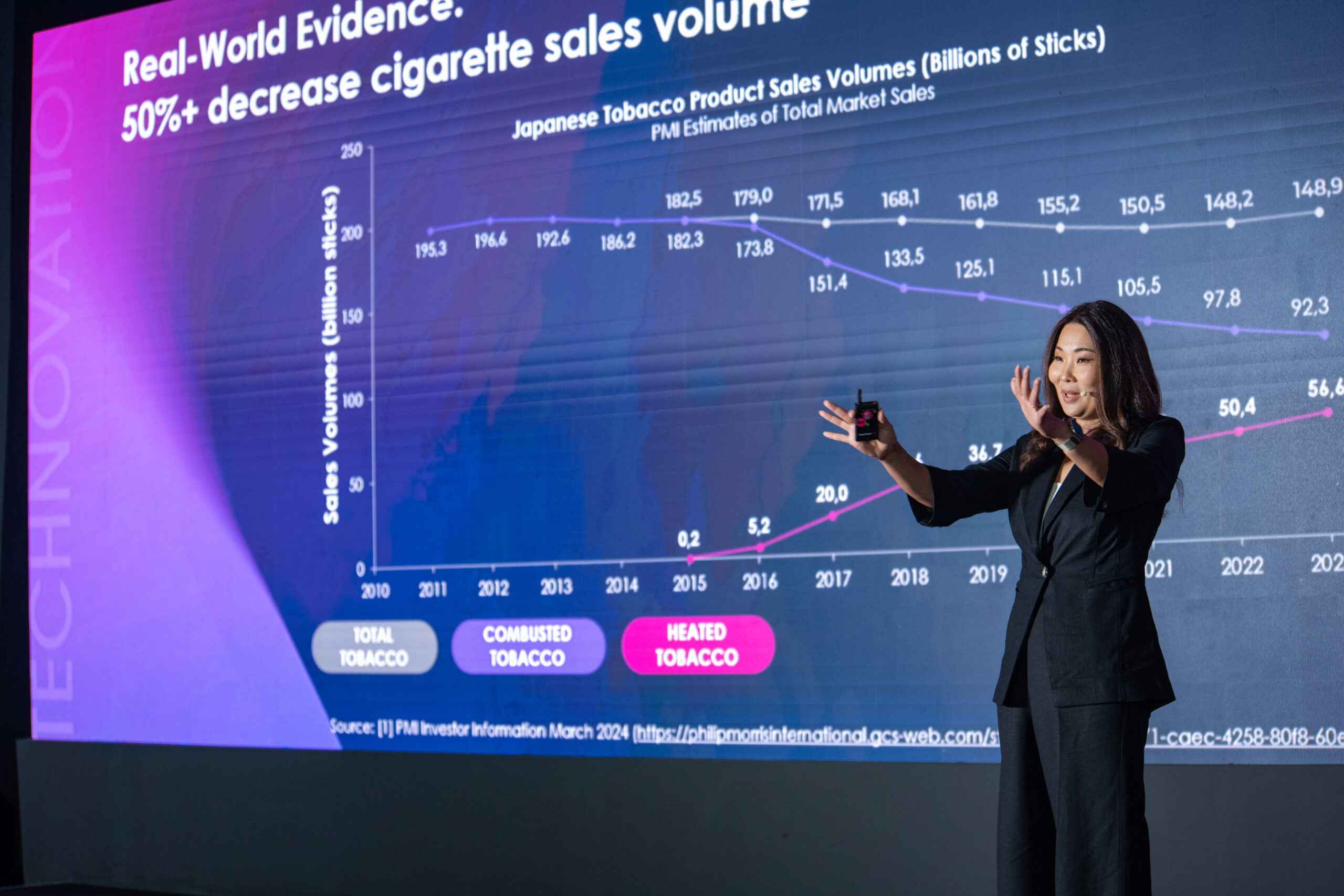Tomoko Iida, PMI’s Director of Scientific Engagement
Innovation rooted in science and strengthened by cross-sector partnerships is accelerating the shift toward a smoke-free future. This was the key message from Technovation 2025: Smoke-Free by Sampoerna, a forum held in Jakarta that spotlighted how technology, policy, and business collaboration are helping transform the tobacco industry.
The event brought together public and private sector stakeholders to share how technology and partnerships are shaping a smoke-free future in Indonesia and beyond.
Philip Morris International (PMI) senior vice president Christos Harpantidis said innovation is not merely about creating new technologies, but a call to address global challenges through responsible and contextual approaches. He said real, impactful innovation can only happen when it is aligned with the unique characteristics and needs of the local market and supported by cross sector collaboration.
Sampoerna president Director Ivan Cahyadi reaffirmed the company’s commitment to continuous innovation based on scientific research into smoke-free products for the Indonesian market. These alternatives, he said, are intended to offer better choices for adult smokers who would otherwise continue using tobacco or nicotine products.
Introduced in Indonesia in 2019, these products have helped spark partnerships across sectors, benefiting adult consumers, business partners, and local communities.
Sampoerna sales director Yohan Lesmana noted that innovation becomes meaningful when better products are made accessible.
“This isn’t about creating high-end technology in laboratories; it is about bridging science with daily life, bringing it directly into the hands of adult consumers who deserve better choices,” he said. He emphasized the company’s efforts to build a responsible ecosystem through collaboration with business partners.
Sampoerna’s smoke-free partnership program now engages 600 local MSMEs in 20 cities, creating 1,300 local jobs and involving 150,000 traditional retailers under the Sampoerna Retail Community. Partnerships have also expanded to include hotels and cafés.
One such partner is The Trans Luxury Hotel in Bandung, which converted several smoking rooms into IQOS-friendly spaces. “In the hospitality world, comfort and cleanliness are paramount. The presence of smoke-free products has greatly helped us maintain our service standards,” said Anggia Elgana, Director of Marketing & Communications at the hotel.
At Maja Family café, chief marketing officer Omar Karim Prawiranegera shared that customer traffic and loyalty significantly increased after designating areas for smoke-free product users.
PMI and Sampoerna’s smoke-free portfolio includes heated tobacco devices like IQOS with TEREA sticks, BONDS by IQOS with BLENDS by A sticks, the VEEV e-cigarette, and ZYN nicotine pouches. These products do not combust, resulting in 90–95% lower levels of harmful and potentially harmful substances compared to cigarettes, according to Andre Dahan, Sampoerna Marketing Director for Smoke-Free Products.
Tomoko Iida, PMI’s director of scientific engagement, cited countries like Japan, the UK, New Zealand, and Iceland—where access to these alternatives is allowed—as examples of faster reductions in smoking prevalence.
“If you compare countries that allow these alternatives — like Japan, the UK, New Zealand and Iceland — with those that ban them, it’s clear that those who allow access are reducing smoking prevalence much faster,” Iida said.
She highlighted Japan’s sharp decline in cigarette consumption since the introduction of IQOS in 2014. “The number of Japanese smokers almost halved in nine years. From 186 billion sticks, it’s now half at 92 billion sticks. It’s incredible.”
Government surveys confirm this trend: Japan’s smoking rate fell from 19.6% in 2014 to 9.4% in 2023, beating its 2032 target nearly a decade ahead of schedule. “By making the smoke-free alternative available, smokers can move away from cigarettes and switch to this product,” she added.
Iida also cited similar outcomes in Switzerland, Germany, and Sweden, where many smokers have transitioned to alternatives such as snus and nicotine pouches.
“Today, the combined sales of snus and nicotine pouches exceed cigarette sales in Sweden,” she said. “Years later, this same male population now has the lowest lung cancer rates in the EU. This is the core of tobacco harm reduction.”
She stressed that nicotine is not the main cause of smoking-related disease. “While nicotine is addictive and not risk-free, it is not the primary cause of disease from smoking. It’s the burning process that creates the dangerous chemicals,” she said, citing the U.S. FDA and the UK Royal College of Physicians.
According to Iida, smoke-free alternatives are just beginning to gain traction in the Philippines. She noted that while there are early signs of a “slight decrease” in cigarette use due to the rising popularity of these alternatives, it may take five to seven years for the country to see a faster drop in cigarette consumption.
“I think it’s a matter of time. As the switching gets accelerated, and more people learn accurate information, and they have a right to access and switch, we will see that decline much faster,” Iida said.
PMFTC Inc., PMI’s Philippine affiliate, currently offers the IQOS Iluma device and ZYN nicotine pouches in the local market, with more products under development.
“We develop products that eliminate combustion, so we can offer a better alternative to our consumers. These products are not for never-smokers to start with. So, you always have to remember that these products are a better alternative compared to cigarette smoking. That is the caveat,” she added.

“Misinformation is the greatest blocker for progress. This is our shared responsibility,” said Elvira Lianita, Sampoerna director of external affairs, during her concluding speech. “Correct the facts, provide information and encourage dialogue. Give access to the truth and benefits of smoke free products.”



















